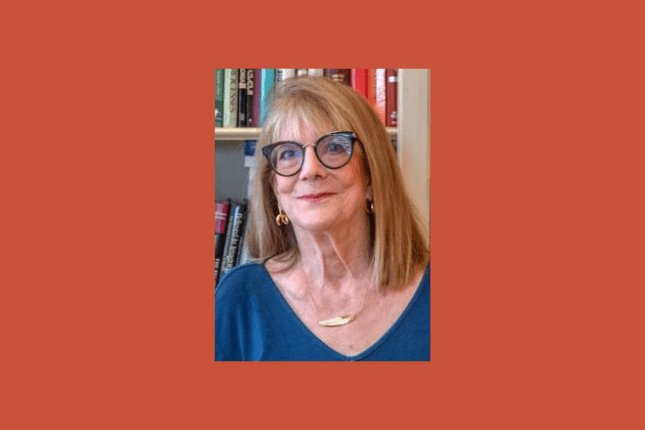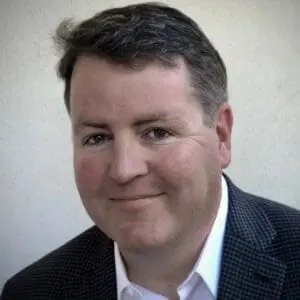Beginning in the late 1980s and early 1990s, almost every newspaper, mass circulation periodical, and television news show covered a fiercely polarizing debate, played out in highly publicized court cases around the country, about whether it was possible to recover childhood memories of abuse. Galvanized by bestselling self-help publications like The Courage to Heal, empowered by the women’s movement, and spurred to action by the growing recognition that child abuse was far more prevalent than had been believed, an increasingly vocal adult survivors’ movement had begun to form, determined to bring to light the previously ignored subject of child abuse. During this time, many clients began to tell their therapists tales of early abuse they’d never spoken of before.
In the fervor that accompanied the public airing of what had previously been family secrets, critics began to argue that overzealous therapists were fueling a witch hunt against innocent parents and irresponsibly ignoring the basic rules of scientific evidence, not to mention sound clinical judgment, encouraging the fabrication of stories of childhood abuse years after the fact. Many troubled families were torn apart by irresolvable conflicts about whether abuse had taken place. Some of these cases wound up in court, with therapists being sued for causing irreparable psychological damage through their treatment of suggestible and emotionally vulnerable clients.
Enter Elizabeth Loftus, a research psychologist specializing in understanding the malleability of memory, who went on to become one of the most honored psychologists of all time. During what came to be known as the memory wars, she emerged as the most prominent public critic of the notion that memories of childhood abuse could be recovered years later. She served as an expert witness in many of the most publicized recovered-memory cases of that era and became a controversial figure, whom many therapists came to regard with a mix of fear and outrage for what they considered her assault on their profession.
Today, while Loftus has adopted a far less conspicuous public profile, she continues to do research on the phenomenon of false memories at the University of California, Irvine, where she was the founding director of the Center for Psychology and Law and is now a professor in several departments and in the law school. In the interview below, she reflects on her role in the memory wars of the 1990s and whether our increasing understanding of the brain has succeeded in further illuminating the difference between real and false memories.
—–
RH: How did you become interested in researching the unreliability of human memory?
Loftus: After graduate school at Stanford in the ’60s, I was pursuing an academic career in semantic memory research when a cousin asked what discoveries I’d made as an experimental psychologist. I said, “I discovered that when people have to give you the name of a bird that’s yellow they’re faster to do that than if you ask for the name of a yellow bird. They’re 250 milliseconds faster!” She looked at me and asked, “How much did we pay for that?” It was really then that I knew I wanted to do some work that had some immediate social relevance.
Since I’d had a long-standing interest in the legal process, I began to think that maybe I could study the memory of witnesses to crimes and accidents. That’s what I started doing in the ’70s, and that’s really how I got launched into the intersection of psychology and law. At that point, my focus was on witnesses and the ways in which they were interrogated by police officers or investigators. I became interested in the ability of those interrogations to shape the stories the witnesses told and the memories they ended up with. I then began to be involved with court cases.
RH: Weren’t you involved with the McMartin Preschool and Ted Bundy trials?
Loftus: I was, yes, and many other cases, but most of them didn’t involve sex abuse. There were murders and robberies and the many kinds of cases where there are witnesses, or accident cases where sometimes the eyewitness testimony and the physical evidence completely contradicted each other. In 1990, I got a call from the lawyer representing someone accused of murder based on his daughter’s repressed memory, and that’s what threw me into the whole world of repression and psychotherapy.
RH: Repressed memory and the question of whether psychotherapists were implanting false memories in their clients attracted widespread public attention in the 1990s, and still is 20 years later. You became known as perhaps the leading critic of what you considered some of the excesses of psychotherapy. Was there pushback?
Loftus: Oh yes. In 1993, I wrote my first big article, “The Reality of Repressed Memories,” for the American Psychologist, but it was just the beginning of my journey, and I became more and more skeptical of repressed memory after that article. People didn’t start their major attacks in earnest until after that. I was amazed at the negative reactions I received. There were even death threats at my speaking engagements. When I went to the University of Michigan, they hired an armed security guard to be with me all day. Psychologists were trying to drum up letter-writing campaigns to the chair of my department, the president of the university, and the governor of my state to try to get me fired. People were exaggerating my position. Some said I didn’t believe any abuse ever happens, but I’d actually written about my own childhood abuse in a book in 1991.
What I was reacting to was a sentiment in the therapeutic community that the suspicion of abuse was sufficient evidence that it had happened. There was even a classic line in an influential book by Ellen Bass and Laura Davis titled The Courage to Heal that was read by many genuine victims and some would-be victims: “If you think you were abused and your life shows the symptoms, then you were.”
RH: You’ve argued that the phenomenon of repressed memory is largely a myth, but I’ve certainly recalled memories I haven’t thought about for decades.
Loftus: People might be reminded of something they haven’t thought about for a long time. That certainly happens, even if you’re not in therapy. If you go to a high-school reunion, you’ll experience that for yourself. You can also think about traumatic things that you haven’t thought about for a long time, but there’s no good evidence that you can be raped for 10 years and be completely unaware that this has happened to you and reliably recover it in therapy.
Nevertheless, in the 1990s, the idea of repressed memory became so accepted that legislators were seduced into doing things like extending the statute of limitations. To me, that’s a problem. I don’t think someone should be able to come forward and say, “I just remembered in therapy that you robbed me of $1,000 25 years ago and I want it back, so I’m going to sue you.” And if you ask the person, “What do you mean you just remembered you were robbed? How did you remember that?” and they say “I floated up to the ceiling and looked down and saw myself being robbed,” you wouldn’t believe that person. But if they said, “I floated up and looked down and saw sex abuse,” for a time in the 1980s and 1990s, that became an acceptable thing to say. In 1989, the state of Washington enacted legislation that extended the statute of limitations so you could sue based on your repressed your memory of abuse. You could be 60 years old and sue your 90-year-old father for something that had allegedly happened 55 years earlier. And then state after state did the same thing.
RH: You were involved in cases during that time in which you testified against therapists being sued for their work with repressed memory. Looking back, is there anything you’d have done differently in those cases?
Loftus: I don’t know. Other skeptics were expressing their views about false memories much more aggressively than I was. I always took the position that the therapists were well-meaning but attached to theories that were unsupported and procedures that might have unintended side effects.
RH: But you became the one who attracted the most ire among therapists. Why do you think that happened?
Loftus: Some writers, like Jill Neimark in Psychology Today, have speculated that it was because I’m a woman. As a result, I was thought of as a traitor to the women who were reporting repressed memories of abuse.
RH: With all the brain research that’s been done over the past two decades, do we have a better understanding now of how to distinguish “false” memories?
Loftus: The first thing to acknowledge is that neuroimaging and other advances haven’t taken us far in discriminating true memories from false memories. The neural signals that are associated with somebody recounting something that they actually experienced versus something they think they experienced as a product of suggestion are still too similar. We’re a long way from being able to say reliably whether this is a genuine memory or the product of some other process.
RH: Although I’m not aware of many cases of false memory involving therapists these days, the controversy over sexual abuse by Roman Catholic clergy has certainly brought the issue back into the headlines.
Loftus: The clergy scandal has breathed new life into the repressed-memory issue. But there’s an important difference: in the clergy cases, people come forward with continuous memories of their abuse. Maybe they even told somebody at the time and weren’t believed. But then there’s publicity about it, and soon hundreds of people come forward and jump on the suing bandwagon, saying “I repressed my memory” and trying to use the initial accusations as corroboration for their own repressed memory. But to me, those allegations aren’t really independent: they have a me-too quality, in that they followed another accusation. So I think you have to analyze the situation and find out how this memory was created and what kind of history supports it.
RH: Looking back, how do you think your work transformed the way therapists address trauma?
Loftus: I think clinicians are more cautious these days. When they see someone with an eating disorder, they’re less likely to assume that buried trauma memories need to be dug out. I think a lot of therapists are more careful, whether it’s because they genuinely don’t want to do harm or because they don’t want to be sued. But not everybody. People out there are still clinging to these cherished beliefs.
RH: Okay. So how should I proceed if a client says, “I had this dream that maybe I was abused”?
Loftus: I’m a little reluctant to say too much, but I’ll say that it’s a tough situation. If clients sense they’re not fully believed, they may go off and find somebody who’s not a good clinician but who’ll embrace all they say uncritically—and the client may end up worse as a result. I think therapists need to be open to the idea that there’s not just one explanation for the symptoms and problems that people present. They also need to open clients up to the idea that there are multiple reasons why they might be experiencing the symptoms they present.
RH: What’s the most important thing therapists working with trauma and abuse can learn from your work?
Loftus: Well, if I’ve learned anything, it’s that just because someone tells you something with great detail and confidence and emotion, it doesn’t mean it happened. So just being open to the possibility that you’re dealing with the product of some process other than an authentic memory recovery would be a step in the right direction.
Photo from UCI School of Social Ecology
Ryan Howes
Ryan Howes, Ph.D., ABPP is a Pasadena, California-based psychologist, musician, and author of the “Mental Health Journal for Men.” Learn more at ryanhowes.net.













